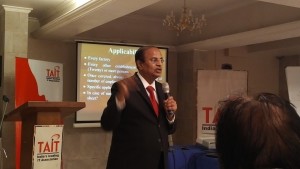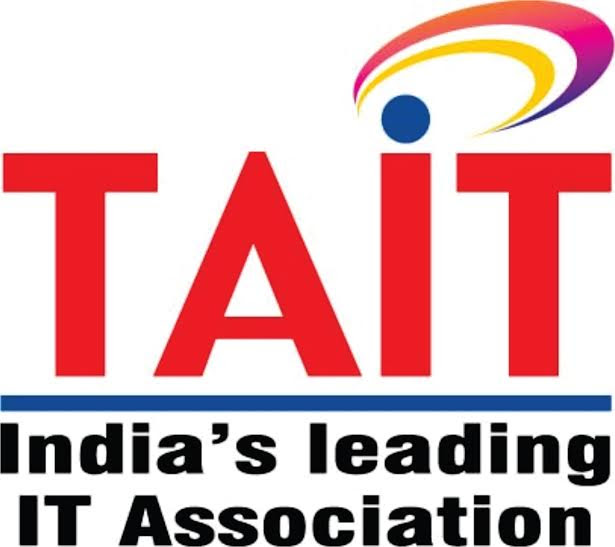Backdrop of Demonetisation and GST rollout from July 2017 driving factors behind move to ensure effective compliance with statutory rules and labour laws
 The GST Council that recently met in New Delhi has reached a consensus on roll out of GST across the country from 1st July 2017. This was announced by Shri Arun Jaitley, Hon. Minister of Finance, Government of India. According to the agreement reached between the Centre and the States at the 9th meeting of the GST Council, states will have powers to assess and administer 90 per cent of the tax payers under Rs 1.5 crore annual turnover while the remaining would be controlled by the Centre. For tax payers with more than Rs 1.5 crore turnover, states and the Centre will control and administer them in 50:50 ratio. Work on designing the systems and processes for the GST Network (GSTN) are at an advanced stage.
The GST Council that recently met in New Delhi has reached a consensus on roll out of GST across the country from 1st July 2017. This was announced by Shri Arun Jaitley, Hon. Minister of Finance, Government of India. According to the agreement reached between the Centre and the States at the 9th meeting of the GST Council, states will have powers to assess and administer 90 per cent of the tax payers under Rs 1.5 crore annual turnover while the remaining would be controlled by the Centre. For tax payers with more than Rs 1.5 crore turnover, states and the Centre will control and administer them in 50:50 ratio. Work on designing the systems and processes for the GST Network (GSTN) are at an advanced stage.
The current stress on building a cashless economy after the demonetisation of the Rs. 500 and Rs. 1,000 currency notes announced in November 2016 also means that digital payment solutions will see increased adoption, adding to statutory reporting and compliance requirements.
“The recent significant developments in the country’s legal/regulatory business environment mean that SME business owners and managers will be held up to higher standards of scrutiny than ever before. Transparency in operations and corporate governance best practices are not just a necessity but are seen as tools leveraged by enlightened corporate managements. This makes it all the more necessary for IT Business Partners to ‘walk the talk’ and adopt a structured approach towards day-to-day compliance issues. In the long term this would not only boost employee morale, but also lay the foundation for sustained innovation and revenue growth, a strong brand image and a healthy bottom-line”, stated Mr Rushabh Shah, President, TAIT.
Accordingly, TAIT, the premier association of IT companies in Mumbai, that comprises of SME sector IT Vendors, Distributors and Reseller Partners organised a ‘Knowledge Series’ Workshop on the theme “Effective Administration of Statutory Compliances”. The workshop was conducted by Mr Ramesh Soni, Principal Consultant, RLS Consulting, who emphasised that compliance to statutes is in the best interests of cordial employer-employee relationships,and would in turn lead to the sustained growth of the organisation.
Addressing the participating TAIT members Mr Soni said, “Statutory compliance is a must for every progressive employer and it is important to comply with the laws of the land to make sure that the organisation plays a positive role in encouraging transparency in business through corporate governance best practices. Usually, if not taken care of during the early days of founding of an organisation, it may impact growth and corporate reputation.In the present competitive globalised business environment, it would be very demanding for an employer to handle statutory compliance without the support of a good payroll management solution.”
“There are a number of statutory compliance needs for Indian companies and theymust invest a good proportion oftheir time in understanding and implementing their payroll management solution to make sure they are fully compliant with all relevant legal rules and regulations.If companies do not successfully adhere to statutory compliance requirements, they may end up having to pay penalties, which would cost several times more than complying with legal guidelines in the first place”, Mr Soni further added.
Mr Soni talked about key provisions like Provident Fund (PF), Employees State Insurance Scheme (ESIC), Bonus, Gratuity and related rules to help the TAIT members appreciate their significance in running business operations smoothly. Employers need to comply with statutory requirements based on the number of employees they have on their rolls. Employeebenefits such as PF and ESIC are applicable when an organisation crosses a strength of 20 employees or more.
Mr Soni briefed TAIT delegates about the traits of two types of employers in the SME sector – firstly, those who want to make sure all systems and facilities are available from the day an employee joins the organisation, irrespective of their size; secondly, those who would like to deal with statutory issues as they arise.
He went on to state that there are specific Acts (laws) and Rules applicable to businesses, based on the industry and location. Taking up the Maharashtra Shops & Establishments Act, 1948, Mr. Soni said that to safeguard the interests of workers and to regulate the working conditions of employees engaged in shops, commercial establishments, hotels, theatres and other establishments, the Act came into force on 11th January 1948. Similarly, the Bombay Shops and Establishments Act is another piece of State legislation. The Act defines the terms “apprentice”, “commercial establishment”, “employee”, “establishment”, and “shop”. It is a comprehensive legislation regulating working hours, rest intervals, weekly holidays, spread-over, leave with wages, health and safety, and employment of women and children. It provides for inspection of commercial establishments and shops by inspectors appointed under the Act. However, the Act is not applicable to Chartered Accountants and Legal Practitioners.
Mr Rushabh Shah, President, TAIT added, “Adhering to statutory compliance rules is essential for all SME organisations, to secure their businesses from legal difficulties. A profound knowledge of statutory compliance rules and regulations is needed to minimise risks linked with non-compliance. Like other critical business decisions involving branding, marketing, training and hiring of key employees, this aspect merits unwavering focus from the SME owner-manager.”
An attending TAIT member, Mr Pramod Dalmia, of Spur Electronics said, “It is essential to comply with all relevant legal and statutory requirements if I want to run my business smoothly and fruitfully and serve customers across India. I found the insights shared by our guest speaker highly educative and the session helped to clarify many lingering doubts.”
Mr Samir Parekh, Vice-President, TAIT said, “TAIT is very happy to introduce value additions to benefit our members who have so positively supported us through the years. Addressing the issue of labour laws was the need of the hour because many amongst us launched our businesses as a ‘one man’ show but have since grown to a 100-plus team size. In spite of this, we are unaware of some of the key legal provisions in this domain.
Mr Samir Mehta, General Secretary, TAIT said, “This workshop helped to open our eyes and ears and put us in the correct frame of mind vis-à-vis personnel management best practices”.






